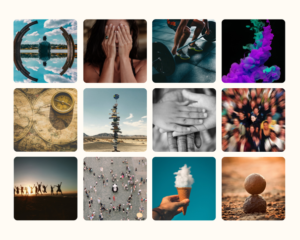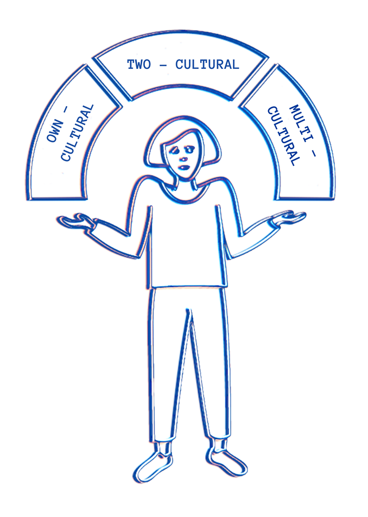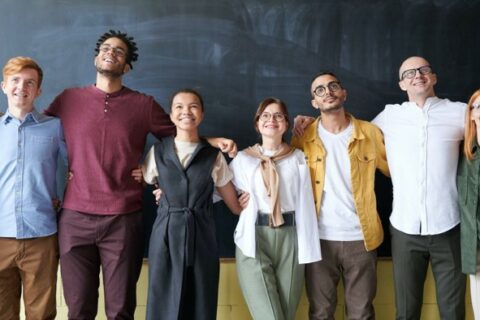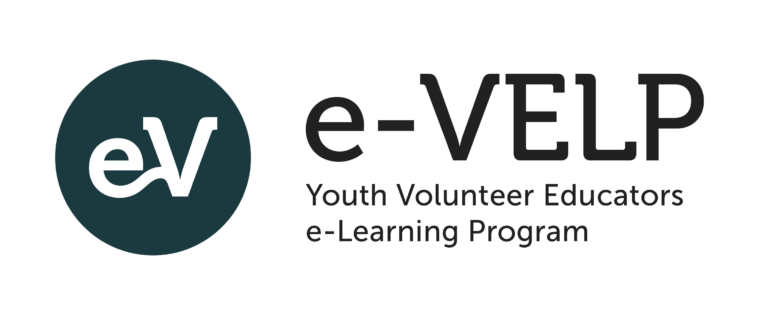Unit C.1.2 Learn about the role of cultural knowledge and importance of cultural encounters in everyday situations
Learn about the role of cultural
Learn about the role of cultural
knowledge and importance of cultural
encounters in everyday situations
Learn about the role of cultural
knowledge and importance of cultural
encounters in everyday situations
Learn about the role of cultural
knowledge and importance of cultural
encounters in everyday situations
In the first theme we spoke about culture, cultural knowledge, cultural encounters, and identity. We also mentioned that the key element for cultural encounters is learning about and learning from people from other cultures. In fact, we should learn not only from encounters – we should also learn about the complexity of culture from cultural facts.
This is where intercultural learning comes into play. It is one of the learning areas that is crucial nowadays. Intercultural learning is not a new topic in the field of education or youth work. It remains an important topic for the political priorities of both the European Commission and the Council of Europe, and of their partnership in the field of youth.
Why is intercultural learning important?
(Sandu, Lyamouri-Bajja, 2018, p. 5):
– Intercultural learning helps to see structures of power in society and relations between individuals and groups.
– It helps to see identity as an open and unique concept.
– It prepares people for intercultural dialogue.
– It encourages curiosity and effort to see the complex world.
– It cherishes diversity and human rights values.
Answer to below questions in your personal notebook:
1.What is intercultural learning for you?
2.Have you experienced intercultural learning? When and where?
3.Look at pictures and choose 1-2 picture(s) that somehow symbolize what constitutes intercultural learning for you and how you experienced intercultural learning and explain why you chose these particular picture(s):

What is the main aim of intercultural learning?
To find out read this text: http://www.intercultproject.com/intercultural-learning
We can see intercultural learning from both sides:
➔ from a personal perspective (we gain knowledge, skills, and attitudes about our own and other cultures);
➔ from global perspectives (we understand power relations that exist in societies, political and social contexts, discrimination, the importance of human rights, etc.).
Intercultural learning is an educational approach that can lead to social transformation, so that people from different cultural backgrounds can develop positive relations based on the values and principles of human rights and on seeing cultural differences as positive things” (Sandu, Lyamouri-Bajja, 2018, p. 5)
Intercultural learning has a direct connection with cultural knowledge or facts and cultural encounters.


Usually cultural knowledge is the starting point of intercultural learning, especially in situations when we cannot physically go to other cultures and meet people from other countries. However, intercultural learning should always encourage or lead towards cultural encounters.
Cultural encounters help us gain skills and change values. Cultural encounters break our stereotypes and prejudices about other cultures or vice versa – break prejudices and stereotypes about your own culture. Encounters also encourage others to see you, your personality, your individuality and uniqueness.
Experiencing cultural encounters encourages intercultural learning, where we learn not only about other cultures or other people, but we also learn from other cultures and other people – for example, we change our values, our behavior, etc.

pexels.com
Intercultural learning is a lifelong process
Intercultural learning actually happens when everything that we learned in theory we use in our every practice, i.e. we start to act differently, change our values, or see some cultural aspects differently, etc.
For example, we not only know what a cultural encounter is, but also we try to encounter people from other cultures; we not only know facts about other cultures, but also experience them; we not only know what discrimination and prejudice are, but we also see it as a threat and take action in situations that are discriminatory.
Therefore, part of intercultural learning is experiential learning (to remember experiential learning, you can look at Chapter B), that is, we not only know, but we also meet, act, reflect, conclude and experiment in new situations with people from different cultures.
➔Intercultural learning is a lifelong process because we constantly encounter situations that are related to cultural aspects.
➔Moreover, intercultural learning through encounters is multilayered (scheme on the right):

Kairė, S. Apie save ir kitus: tarpkultūrinis mokymasis tarptautinės savanorystės metu. Metodinis leidinys. 2020, p. 29. Link: https://www.jtba.lt/wp-content/uploads/2020/06/Tarpkulturinis-mokymasis-tarptautines-savanorystes-metu.pdf
Read three stories of cultural encounters that happened to young people who were international volunteers in a foreign country.
I’m getting into the bus and need to buy a ticket. I’m going to a person who sells the tickets and I try to tell him that I want a ticket from there to there; and then bam! In a second and everyone around sees that you’re not a local. Sometimes it’s kind of awkward, as it takes a lot of time to explain to the person what you want and to get to the finish line. You feel it doesn’t work properly when you try to communicate with people. And the way in which others are looking at you… I felt it always, always, doesn’t matter where I was. It‘s a little bit overpressure. In the end I can laugh about it because it’s funny, but while it’s happening, when you are stuck in the “buying” situation, it can be really stressful. You have this feeling, stuck in the situation, “Ohh, damn, everyone is looking at me! I have to make a point now, I have to do it right”. And it is really embarrassing, that everyone looks at you. But in the end, it is something, when you realize that this pressure you create by yourself. [29]
We got a task in smaller groups to find a way to protect the egg when it falls down from the second floor. Our big group of international volunteers is divided into smaller ones. I’m in a group of five people. We are all standing in a small cycle and everyone begins to share ideas on how to protect the egg, but I just can’t start talking… I’m not feeling comfortable when I need to speak in English with other volunteers. I don’t like to hear myself talking in the English language and I’m not really myself when I’m speaking in English. Suddenly, one of the volunteers asks me: “What do you think?”. I very slowly start to talk. I need more time to explain myself, but they do not really listen to me. I start to feel like a ‘bomb’. I just can’t go to volunteers as easily as I could do it with French people. I can’t react how I would like. I have enthusiasm to do this task, but I can’t go into it completely. I’m not myself here and I feel I’m out of this group. [29]
Today is the middle of the midterm training for international volunteers. We start the day by sharing in a group circle our feelings. I hear others share their feelings and the first thought that comes to my mind is that we all came here for the same purpose and left our cultures behind. We are staying here together for seven days. All the time I’m surrounded by the same people. I feel how we are searching for this new common way to communicate. We start to raise similar questions; we start to create very similar jokes. And right now, we are sharing very similar feelings we have here! I’m getting a bit tired, but while I’m here with other people, I must accept them. From the first moment in this training I feel that I’m leaving my culture behind and other volunteers are leaving it too. It is like being in a commune. Here we are all becoming the same and creating a new culture, the culture of international volunteers. [29]
After reading all stories, answer the following questions.
1. What similarities and differences do you see among the experiences of Marta, Matilde and Alex?
2. What do you think, which of these cultural encounters will be own-cultural, two-cultural and multi-cultural? Explain, why do you think so?
3. Have you experienced own-cultural, two-cultural and multi-cultural encounters? What were the situations? What was your experience?
4. What do you think you have learned from the own-cultural, two-cultural and multi-cultural encounters you have experienced?

https://au.reachout.com/articles/understanding-a-different-culture
Intercultural learning through encounters is multilayered and as you saw in the real experiences of young people, we might even experience different encounters at the same time.
Usually intercultural learning happens through actual two-cultural encounters with local people in a different culture, as was the case with Alex.[29]
Two-cultural encounters are peculiar in that potentially people of the hosting country are culturally dominant and privileged over the newcomers, hence they share unequal positions (own–that of others, our territory–others’ territory). Therefore, the newly arrived person can feel less secure and becomes more vulnerable [30].
Have you seen Alex experience moments, when he was feeling not very secure?
We can also learn through multi-cultural encounters with other people who are in a similar position, for example, if we are studying in a group of people that are from different cultures, we are volunteering in one group, etc. (like Marta). These encounters are peculiar in that they eliminate the “quantitative” cultural domination as every mobile person approaches the other from the same position of a newcomer or foreigner. Hence, people here become not only learning partners but also potential learning sources, i.e., they can learn not only with, but also from cultural Others.
What do you think Marta was learning from others and what were others were learning from Marta?
We rapidly become close to those who are similar to us. We rapidly connect with people who have similar experiences as us, for example, participation in the same program, coming to a foreign culture for the same purpose, having common learning experiences during the training and evaluation processes, etc.

pexels.com
Indeed, such conditions as having the same purpose or staying in the same place for seven days also make Marta become similar with others and even enable the creation of an own culture. Being in a multicultural group for a certain time can create what Dervin and [31] named a “cocoon community” that provides belonging and also protection. In the cocoon community we can leave our own cultures behind and create something new that would unify everyone, as they know that they can return to their cultural environment any time and take their cultures back. However, a cocoon is always temporary and sometimes staying in a cocoon is risky, as we might close ourselves from the local people and two-cultural encounters [32].

pexels.com
Finally, cultural encounters experienced in groups also invite us to reflect on our own identity and our relationship with culture and cultures, as in Matilde’s case.

pexels.com
Through cultural encounters we begin to see our relation with our own culture, i.e. what does my culture mean to me? Moreover, during this process we begin to change our static relation with our own culture and see ourselves not only as culturally determined, but also as individual and unique persons. In other words, when we encounter others, we also start to question ourselves:
“Who I am?” “What is the role of culture in my life?”, “Can I identify myself, my behavior only with the culture I was born into?” “How do people from other cultures influence me?” and so on.
Your workshop will also become a space where different cultural encounters will happen: your encounter with local people who will come to your workshop, encounters among people who will come to your workshop, and maybe even an encounter with your culture.
– What encounters with local people do I expect in the workshop?
– How do I feel when I think about this encounter? What is important to do in the workshop to ensure that this encounter will happen in a positive way?
– What do I want to learn from it?
Write down the answers in your personal notebook. They will be useful for you when you reach the end of this chapter. 
And yet, learning through actual cultural encounters is by far not an easy and smooth learning process. Cultural encounters have a complex nature as they are unpredictable and may come with risk and rupture [28], disturbance and shock (Ahmed, 2000) [33], intrusion [34], or alienation [35]; besides, they may be highly specific and unique. Therefore, it becomes vital to reflect on our experiences of cultural encounters: What was happening during the encounter? How did I feel and how did others feel? What does it say about me? What does it say about others and their culture? What did I learn in this encounter? What would I like to change if this encounter would happen once again? It also becomes essential to talk about your experiences with others. As we noticed before, we cannot close ourselves with some facts, we should be also willing to take some action.
1. What is your understanding of intercultural learning?
2. What is important for you to learn about other cultures?
3. What do you think is most important for you during cultural encounters? Give a short explanation why you think so.
4. What would you like to change in your encounters with people from other cultures in the future? How can you change it?
Write your answers in your personal notebook. 

